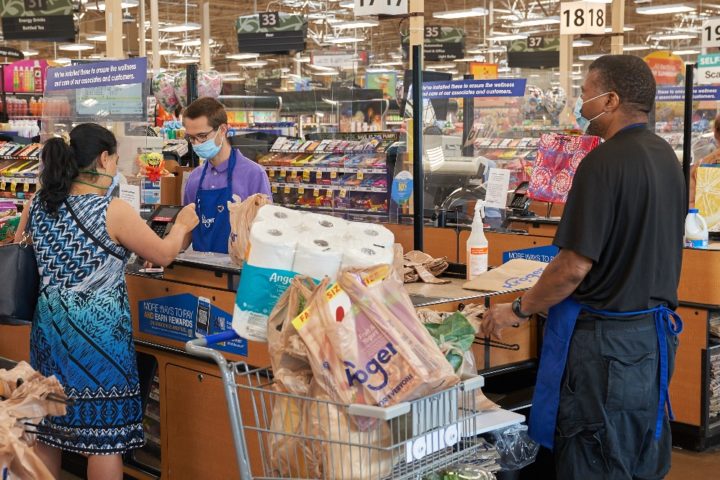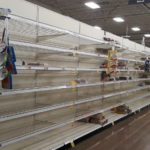It’s been more than a decade since the last recession turned a whole generation of cash-strapped grocery shoppers into couponers. As the economy improved, and marketers tightened their coupon policies to push back on the excesses of the era, couponing slowly fell out of favor with many.
But now, just like that, a whole new generation could be ready to give couponing a try. And marketers who don’t offer coupons and deals, will do so at their peril.
That’s one of the findings of a Nielsen survey, which found that more people are shifting their shopping and savings strategies, in anticipation of a recession that may not end any time soon.
Survey respondents fall into three categories. There are those who have lost income and are already cutting back, those who are in good financial shape and haven’t changed their habits much – and everyone else. Nielsen calls that last group the “cautious middle consumers,” who are still hoping for the best but are planning for the worst.
And watching for deals and clipping coupons is starting to sound like a pretty good idea to them right now.
When asked how they plan to change their grocery shopping habits if economic conditions worsen, 48% said they would start looking for more deals. 46% plan to shop at stores with lower prices. And 43% will use more coupons.
“Brands and retailers need to pay the closest attention to the newly constrained and cautious middle consumer groups,” Nielsen advises. These shoppers “are less familiar with stretching their dollars to make ends meet” and may need some hand-holding when it comes to seeking out deals and finding coupons for things they want to buy. Otherwise, out of desperation, these once-loyal shoppers may switch to cheaper brands or cheaper stores and never come back.
In addition to offering traditional coupons and promotions, Nielsen suggests stores offer additional reassurances like price-match guarantees, and price freezes on staple items – a promotion that was popular during the last recession. Stores and brands can also provide shoppers with “information on how to preserve food longer, keep their homes clean with budget-friendly products and provide value comparisons for low-cost products versus their high-cost counterparts.”
Retailers and manufacturers can also make some changes to keep their own costs down, in order to pass savings along to their customers. Nielsen says they can reduce packaging materials, offer more economy-sized options, and “spend less on keeping shelves visually appealing and focus more on expanding selection and reducing out-of-stocks.”
And, of course, they can offer more deals. “Consumers who need to do more with less will search for the best value,” Nielsen says. So “in-store promotions and sales on essential items” are key, as are “loyalty programs that reward repeat purchases and make it easier to save money.” During troubled times, Nielsen says shoppers “will become loyal to retailers who have helped them learn a new shopping strategy that saves them money and keeps them healthy.”
Since this recession was sparked by a public health crisis, it’s already very different from the recession that launched “extreme couponing.” When this all started back in the spring, coupons and deals were the last things on anyone’s minds. Shoppers were forced to “disregard prices and stock up,” while retailers and manufacturers responded to the surge in demand by “pulling back on promotional efforts and focusing on their supply chains to keep up,” which Nielsen says led to higher prices in nearly two-thirds of the more than 500 grocery store categories it tracks.
But that was then. Today, with little indication of when things might get back to normal, clipping coupons and looking for deals isn’t just a fun hobby or a quirky pastime so as much as it is a necessity for many shoppers. So “the demand for promotions, sales and high-value products that fit current needs will continue to rise,” Nielsen concludes, leaving brands and retailers “little choice but to assess shoppers’ altered perceptions of value and react accordingly.”
So whether you missed out on the extreme couponing craze that eventually got a little out of hand, or whether you have fond memories of the times you used to be able to get a cart full of groceries for next to nothing before stores and manufacturers cracked down, it seems that recession-era deal-seeking and couponing are due for a comeback. For better or for worse.
Image source: Kroger
















